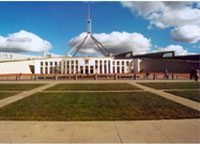|
||||||||||||||||||||||||||
| Politics - POLSC13935 | ||||||||||||||||||||||||||
This plan is only available to students commencing from 2009
Politics is an integral part of human civilisation. The systematic study of politics has been conducted for some 2,500 years, since the ancient Greeks. It thus predates the other social sciences – economics, sociology, anthropology, and psychology – by a few millennia. Aristotle called politics the “master science”, because unless people could live together and flourish all other human pursuits were futile. Politics at UNSW involves the study of governments, political systems, processes and behaviour, public policies, the basis of political relationships such as political authority and political obligation; political values such as liberty, equality, and justice; and normative questions of how human beings should live together. A major in Politics thus treats many of the headline issues and big questions governments, societies, and citizens face. The Politics major is closely connected to International Relations (itself a field of Politics), as well as to the disciplines of Sociology, Economics, History, Philosophy, and Law. UNSW has research strengths in the disciplinary fields of Australian Politics, Comparative/World Politics, and Political Theory. Students graduating from UNSW with a major in Politics should be able to demonstrate:
Students will also develop discipline-specific and generic social science skills, including being able to:
A student who wishes to gain a major sequence in Politics must complete 48 uoc including 12 uoc at Level 1, 18 uoc at Level 2 and 18 uoc at Level 3, including the capstone course.
Level 1
Level 2
Politics Courses:
The following courses from other subject areas can also be counted towards the Politics Major:
Level 3
Politics Courses: The following courses from other subject areas can also be counted towards the Politics Major:
Politics Capstone course (Compulsory)
|
||||||||||||||||||||||||||



